Nothing ruins your garden or yard like weeds, those uninvited guests that rob your plants of space and nutrients. So, it's time to ditch the chemicals, put away the hazmat suit, and try using natural weed killers. Who says you need standard weeding tools to kill weeds? Here are seven weed-killing weapons you may already have around your house.
7 Organic Weed Killer Methods
Review these tips or weed killer recipes to kill those pesky garden weeds.
#1 Kill Weeds by Blocking the Sun with Recycled Material
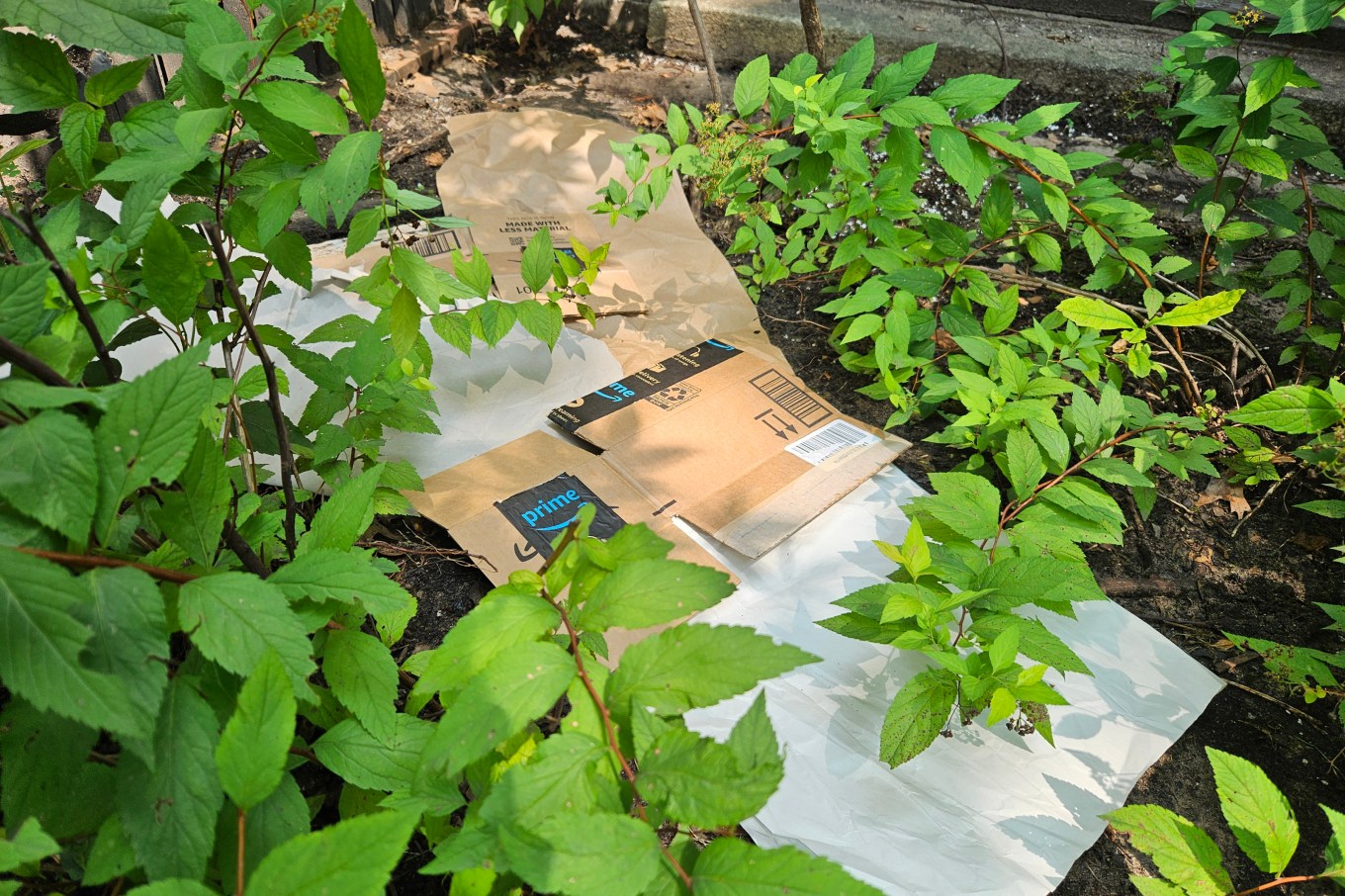
Tired of trashing the almost endless supply of packaging materials shipped to your door? Use old Amazon boxes to block the sun and suffocate those unwanted greens.
A layer of packing paper, cardboard, paper envelopes, or other flyers and mailers blocks the sunlight and oxygen from reaching the soil, smothers already sprouted weeds and prevents new ones from growing. According to The Old Farmer’s Almanac you can throw down a few pieces of cardboard, being careful to overlap them to cover any gaps and keep sunlight away. Then, cover the cardboard with an inch or two of mulch. This type of smothering can help prevent weed seeds from spreading. But keep in mind it will also kill any other plants — even desirable ones. This method is best in areas like walkways or patios where you don’t want any greenery.
Since cardboard comes from plant materials, it will eventually biodegrade back into the earth, turning your trash into a recyclable resource. Avoid using shiny cardboard or any plastic-coated paper material, since it won’t biodegrade. Bubble wrap and other polystyrene can be reused for plant insulation once you’ve got the weeds at bay and the weather gets cold.
#2 Spread Old Shower Curtains and Carpet Samples Over Weeds
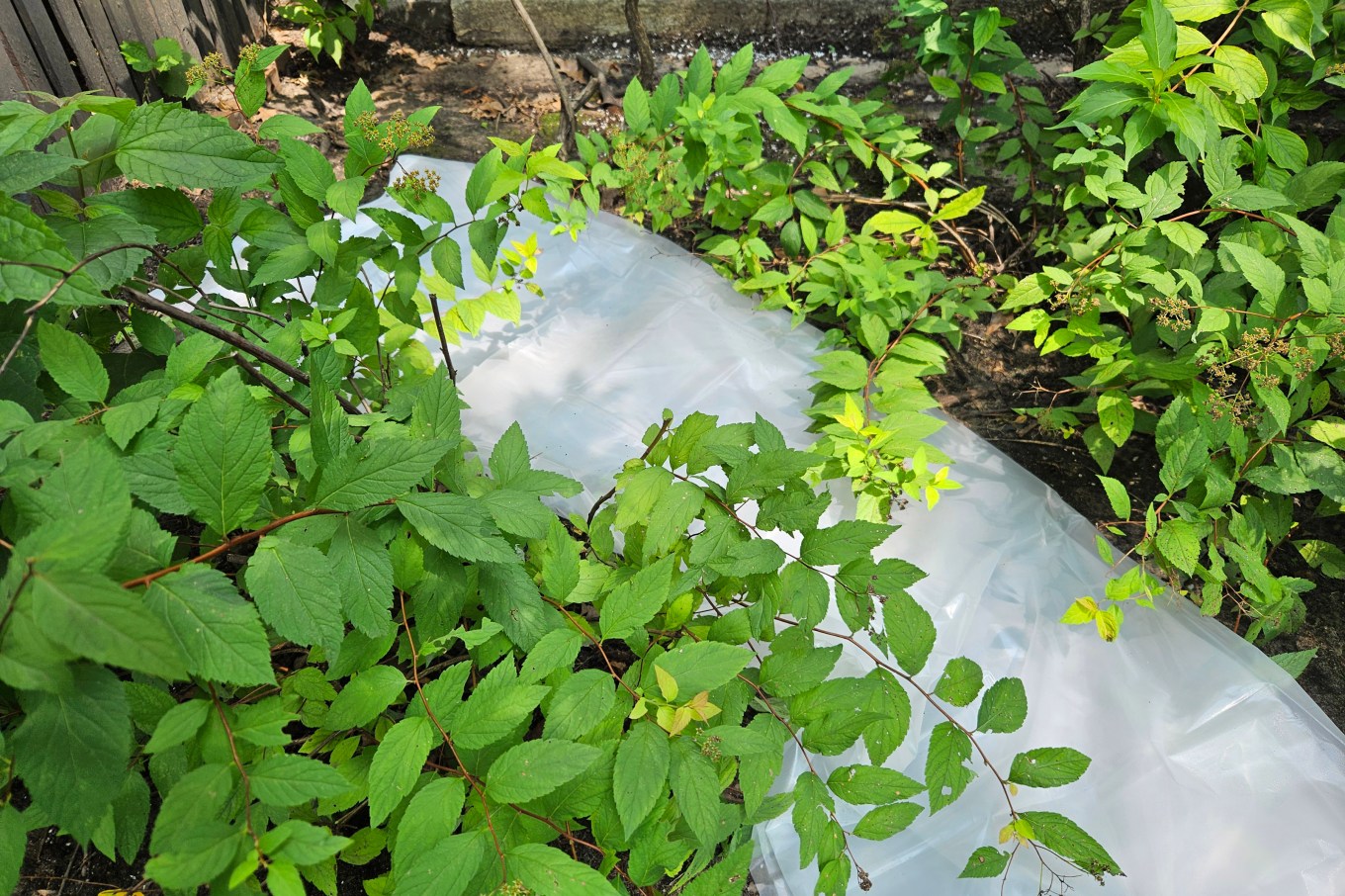
Your old shower curtain or that carpet sample you've been holding onto might have a second life as a weed-battling hero. Lay them over the weedy battleground, cover them with mulch, and watch as they suffocate the unwanted green invaders underneath.
Stick to wool carpet or anything made of natural fibers. Nylon or foam-backed carpet materials may contain chemicals that could leach into the soil. To be safe, avoid using carpet or shower curtains to control weeds anywhere you grow fruits, veggies, herbs, or other edibles you plan to eat.
If you’re careful, spreading these useless items in garden paths or between rows may keep weeds from ever showing their unwanted heads.
#3 Stop Weeds from Growing by Using Corn Gluten Meal
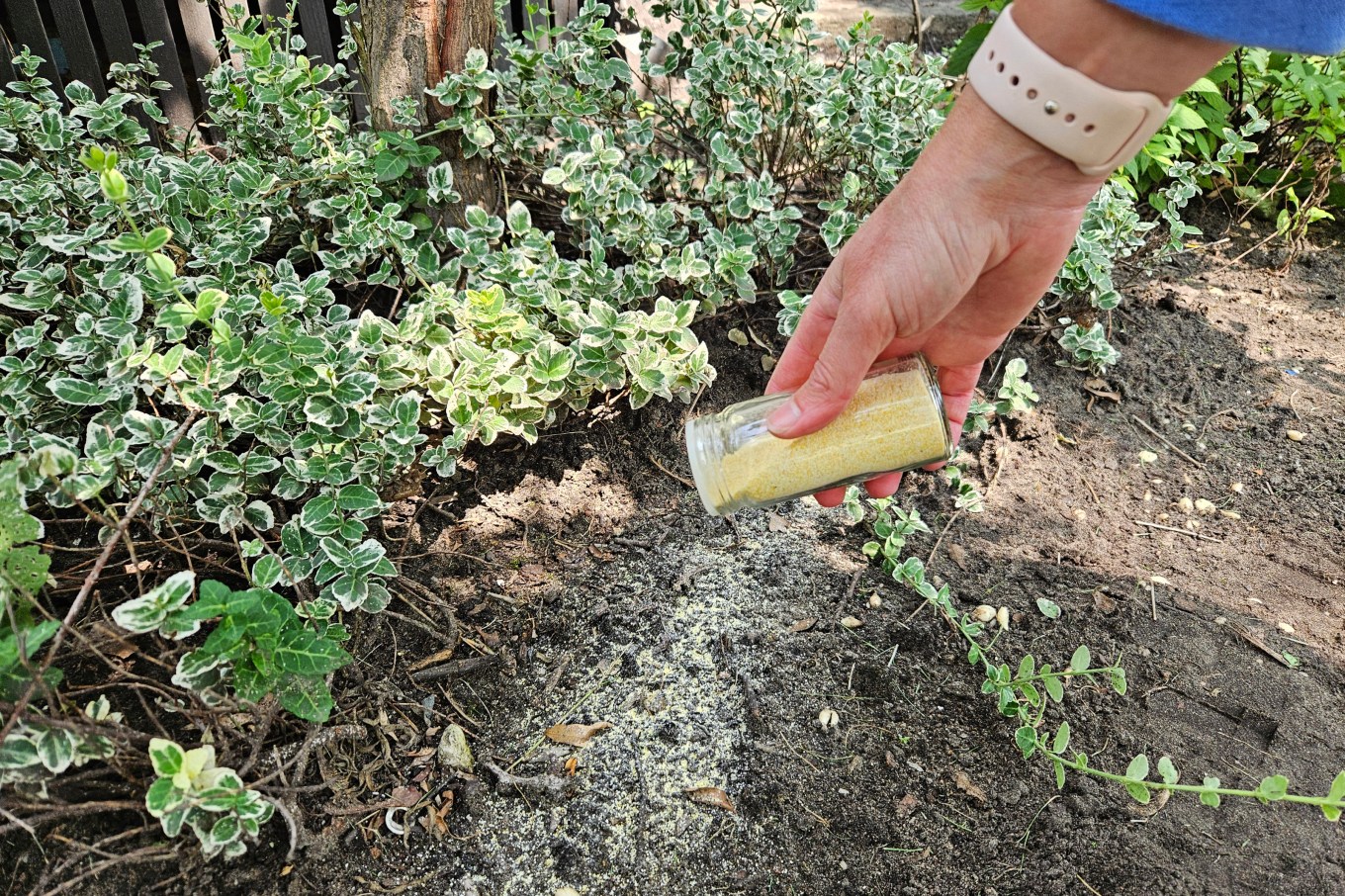
Corn gluten meal isn't just for gluten-free diets— it's also a secret weapon against weed growth. This corn by-product stops seeds from growing into weeds.
Since the meal will prevent germination, spread it around established plants, and after seedlings and transplants have taken hold in the soil. After harvest, spread the meal to prevent late-season weeds.
#4 Use Vinegar for Organic Weed Control
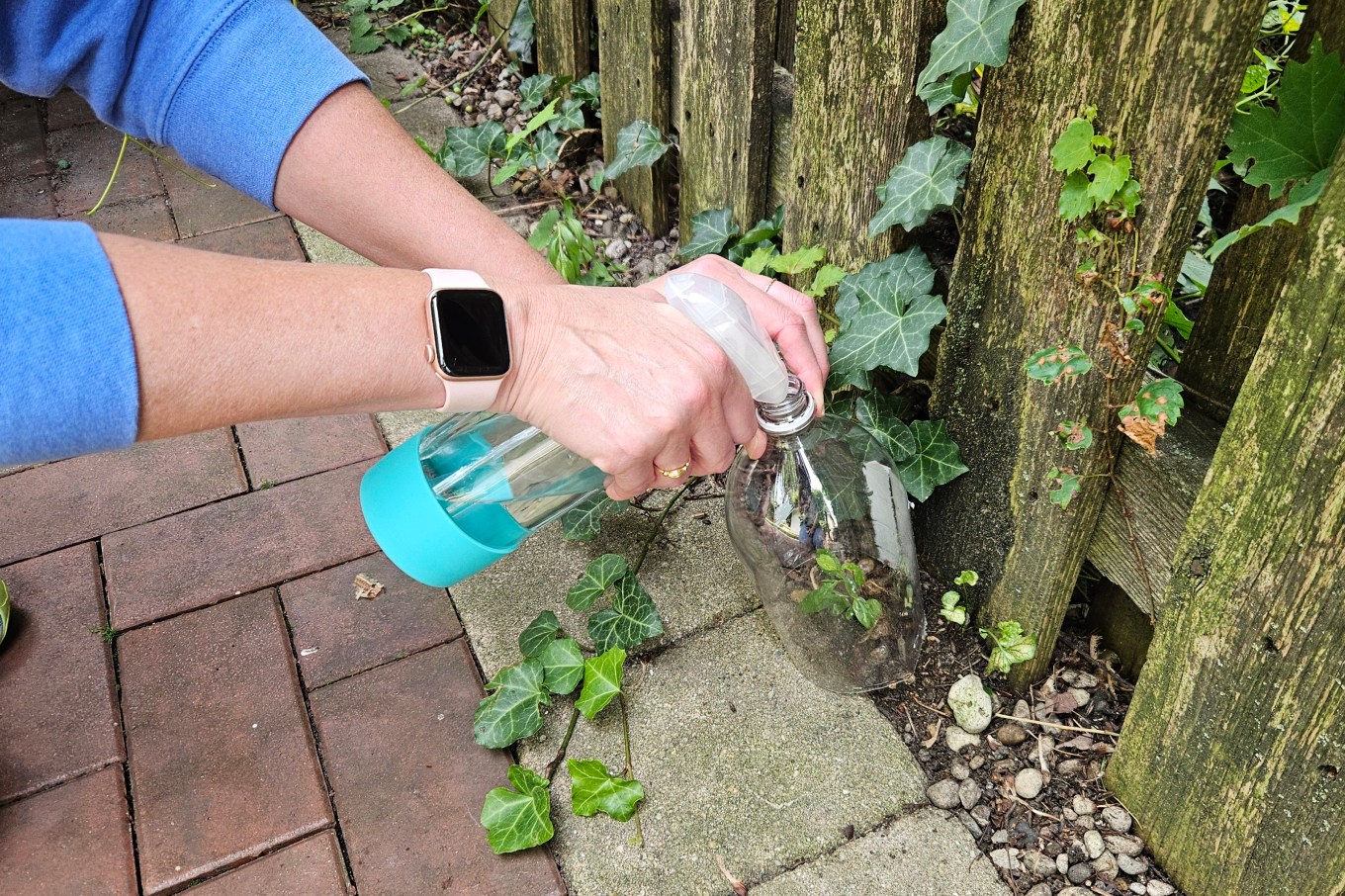
Vinegar is not only effective in cleaning your house but also killing your garden weeds.
The acetic acid in 5% vinegar is a desiccant that sucks the life out of plant leaves. It’s most destructive to young plants with immature roots, though it just rolls off weeds with waxy leaves, like pennywort or thistle.
Make sure you cover plants you want to keep before spraying, because vinegar is an equal opportunity killer. Keep your spray on-target by removing the bottom from a two-liter plastic soda bottle and placing it over the weed. Spray vinegar into the mouth of the bottle, which will keep it from splattering on your vegetables.
#5 Dry Out Weeds with Vodka
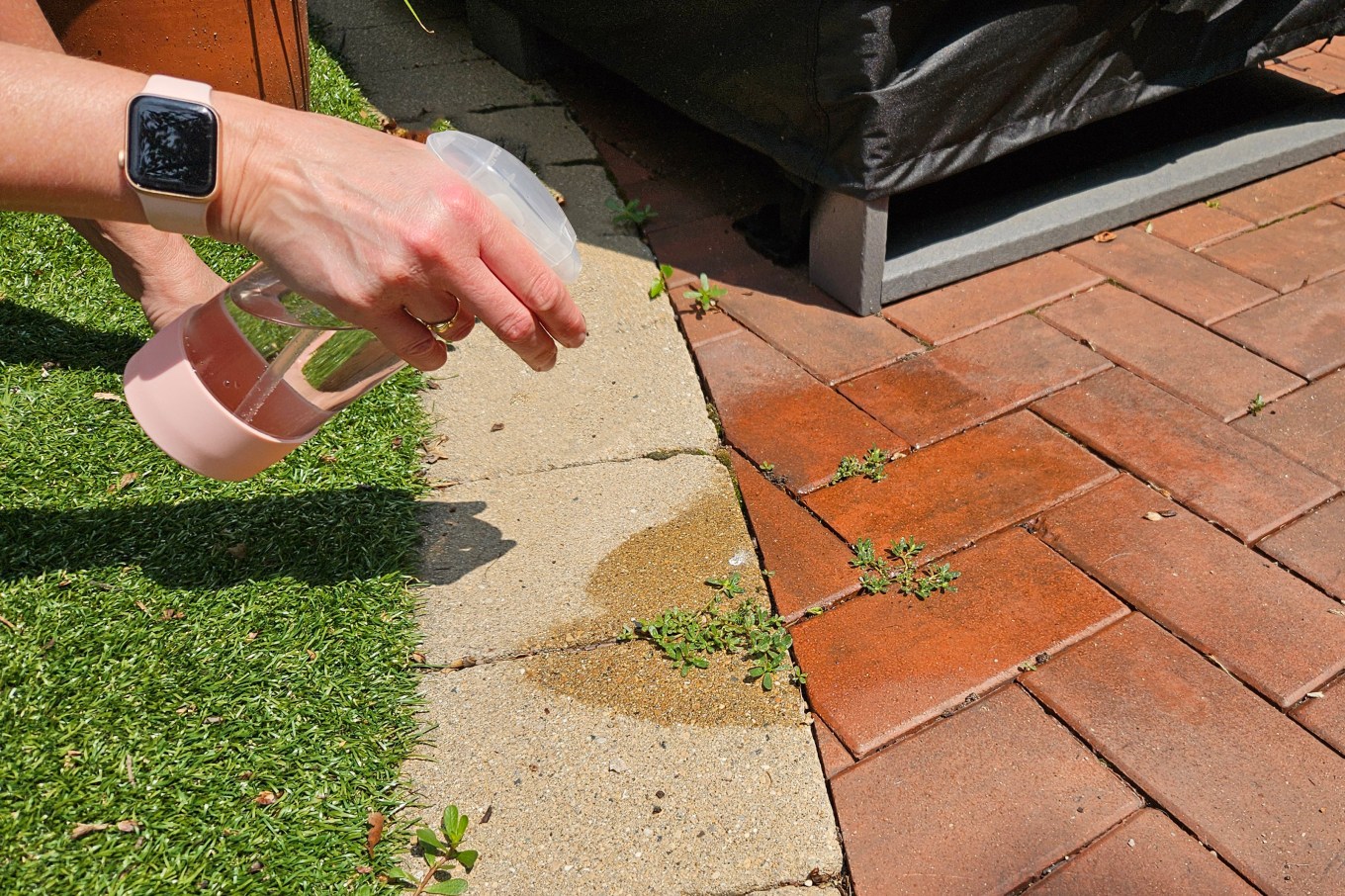
Your liquor cabinet might hold the key to a weed-free zone. One ounce mixed with two cups of water and a couple of drops of dish soap may dry out weeds that live in the sun. The alcohol content dehydrates them, leaving your yard looking less like a party destination for weeds and more like the sophisticated garden you’ve always wanted.
This solution doesn’t work well on shade-loving weeds. Protect plants you want, because vodka will dry them out, too.
#6 Break Down Weeds Using Soap
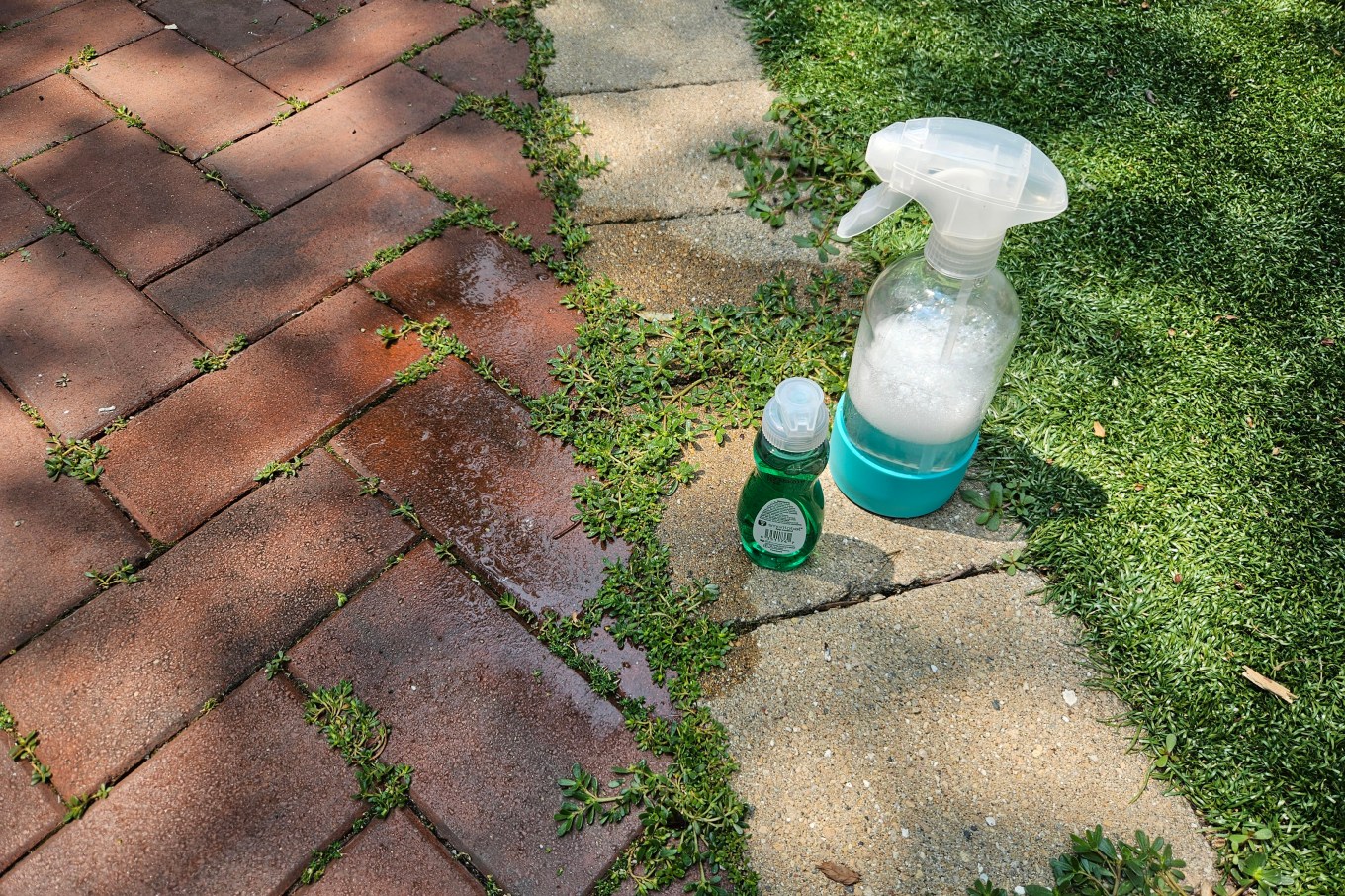
The oil in soap may break down waxy or hairy weed surfaces, making them vulnerable. So, add a few drops of liquid dish detergent to vinegar or vodka sprays to keep the solution on leaves. The soap also makes leaves shiny, which could help you keep track of what you’ve sprayed.
#7 Burn Weeds by Pouring Boiling Water
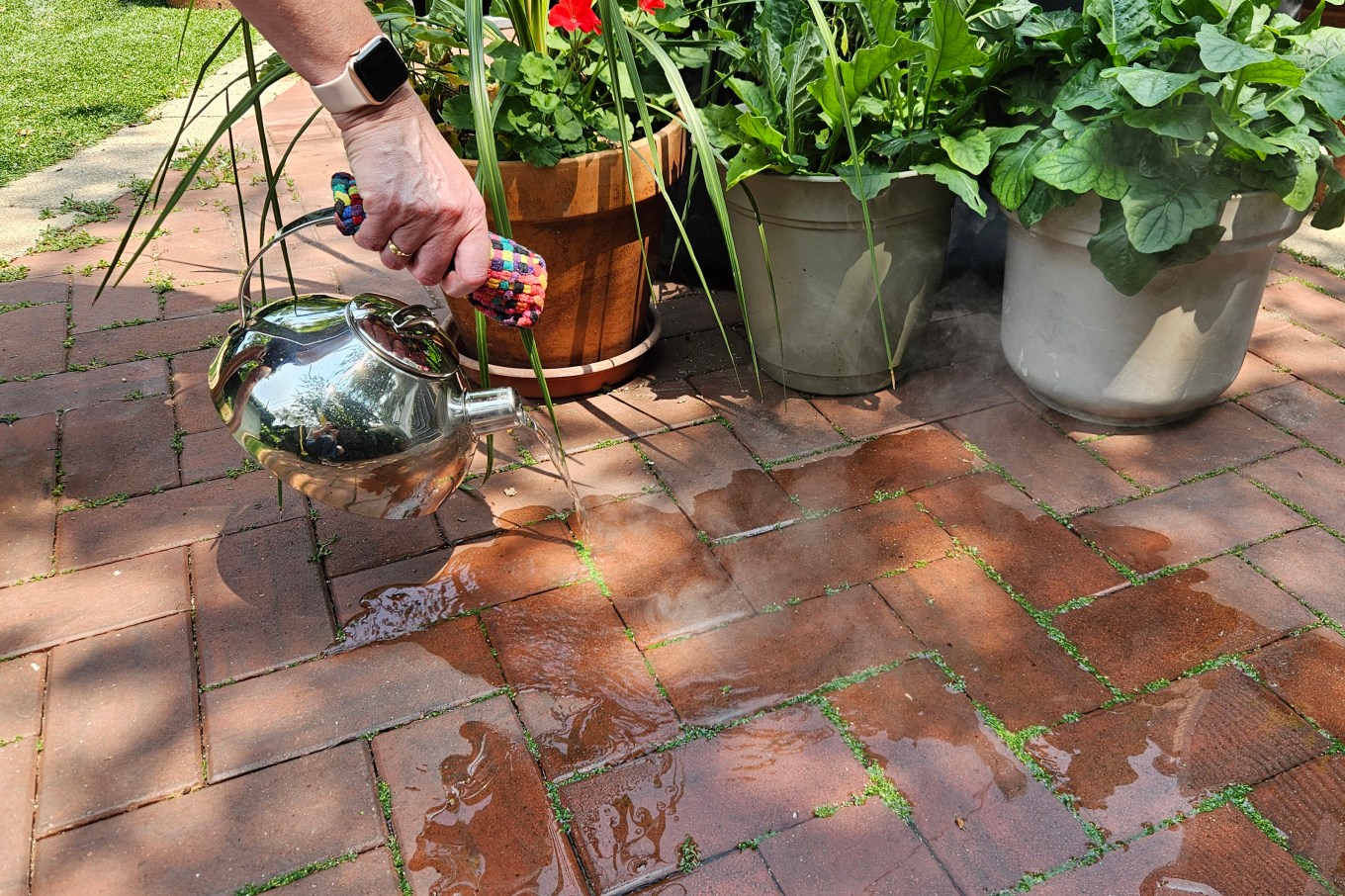
After you’ve made yourself a cup of tea, take the kettle outside and pour the boiling water on weeds, which will burn up. This is a particularly good way to whack driveway and walkway weeds, because the boiling water can run off impervious surfaces and cool before it reaches border plants.
If you plan to try this in your garden beds, use a gooseneck kettle or other funnel to target the specific weeds with precision. According to the Extension and Outreach Office of Iowa State University, this method works best on young, newly sprouted weeds, like those between cracks in pavement. That’s because it attacks only the exposed parts of the plant, not the pesky roots below. To get to the root of the problem (pun intended!), consider adding salt to the hot water (at a 3:1 water- to- salt ratio) before dousing the plants. The sodium chloride will dry out and later kill the plant. Make sure to restrict the salt mixture to the weed-overrun area, since it will dry out anything that’s not salt-tolerant, and can throw off the pH of the soil.
Identifying Common Garden Weeds
Before killing the weeds, you need to know which ones are growing. Most lawn weeds fit into one of three categories: annuals, biennials, or perennials. Although other weeds exist, these are the most common in yards.
Annual Weeds
Annual garden weeds are plants that complete their life cycle -- germinating, flowering, and producing seeds -- all in one growing season. Common types include chickweed (Stellaria media), pigweed (Amaranthus retroflexus), and purslane (Portulaca oleracea), which can quickly invade gardens and compete with desirable plants for nutrients and space.
Best methods to kill annual weeds: vinegar, boiling water, or plain old manual pulling.
Biennial Weeds
Biennial garden weeds have a two-year life cycle. They typically germinate and form a rosette of leaves in the first year, flower and produce seeds in the second year, then complete their life cycle. Common types of biennial garden weeds include common mullein (Verbascum thapsus), wild carrot (Daucus carota), and evening primrose (Oenothera biennis).
Best methods to kill biennial weeds: smothering methods like carpet or shower curtains.
Perennial Weeds
Perennial garden weeds live for multiple years, regrowing from their roots each spring and often spreading through both seeds and underground rhizomes or stolons. Common types of perennial garden weeds include bindweed (Convolvulus arvensis), Canada thistle (Cirsium arvense), and dandelion (Taraxacum officinale), which can be hard to control because they establish long-lasting root systems.
Best methods to kill perennial weeds: a combination of smothering and organic treatments like corn gluten meal. Pulling and digging to remove the entire root system can prevent regrowth.
A Clean Yard Thanks to Natural Weed Killers
Achieving a weed-free yard doesn't always require chemical herbicides. These natural and creative methods are effective alternatives, allowing you to maintain a weed free outdoor space while minimizing environmental impact. Experiment with these techniques to discover which ones work best for your weed control.
